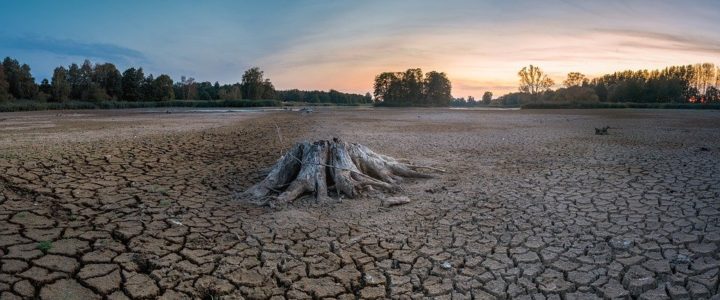
Last week we looked at the long term history of the changes in our planet’s climate. This week we take a look into the shorter history of changes to our climate throughout the history of humans.
Looking at the previous long-term trends in our climate is vital to helping our predictive models extrapolate future scenarios. But long periods of recorded data are not always required to understand some of the negative effects of climate change. Since humans abandoned their nomadic ways to settle themselves in cities, changes in our climate have affected the rise and fall of civilizations, often contributing to the collapse of great empires.
For over 3000 years, ancient Egyptians prospered along the Nile River. At the end of their apotheosis, scientists have identified a relationship between volcanic eruptions and a suppression of Nile summer flooding that put a strain on agricultural production, leading to a disintegration of their flourishing society, and a revolt against the ruling elite.
Rome rose to prominence in favorable climatic conditions. From 200 BC to 150 AD, the Mediterranean provided ideal weather for agriculture that increased GDP, encouraging the population to swell. During the second century, though, droughts became more common, frequent severe winters occurred, and the annual Nile flood became erratic. This strain contributed to the contraction of the Roman Empire.
During the 4th century, the Huns, the nomadic native inhabitants of an arid zone between Hungary and Mongolia, faced a severe drought that forced their migration West. Reaching Europe, the Huns attacked the Goths along the Roman frontier, in turn forcing the Goths further west. A conflict between Rome and the Goths, with the Romans suffering unprecedented defeats, lead to a break up of these territories into Germanic kingdoms.
After a resurgence in the Eastern Greek part of the Roman Empire, other climatic events dealt further blows. Multiple volcanic eruptions in the decade between 536 and 545 AD led to a staggering cooling of the planet for the next century. This strain on agriculture further burdened the once great Empire that was decimated by the Black Death in 541 AD and, ultimately, spiraled into complete disarray over the next century.
Another great civilization, China, has had problems keeping the Empire together. A study in 2007 found that during the last millennium in China, conflict followed climate change. In 12 of the 15 major wars that were studied, cold periods preceded warfare. The study suggests that the frosts would have created food shortages, inspiring rebellions and making communities more vulnerable to invasion.
Changed climate patterns in Africa have led to increased conflict during warmer years, as well. By 2030, it is predicted that this will increase armed conflict by 54% in the region.
So our shortened history of human civilization shows us that even relatively temporary events that affect our climate can have an effect on everyday life. There are many variables that contribute to warfare. But climate change has shown to be a consistent factor throughout our past.
Next week we look at the history of the scientists who changed our understanding of the climate.
Part II of our Climate Change Series that looks at climate history, consequences, policy and future outlook.



